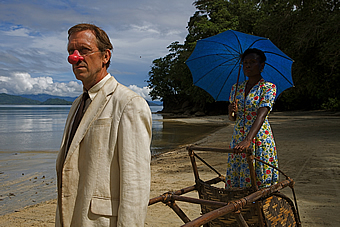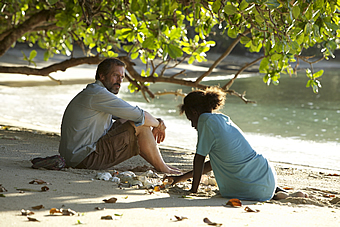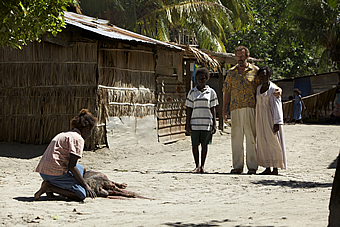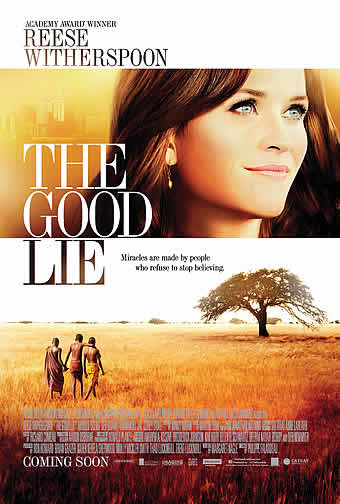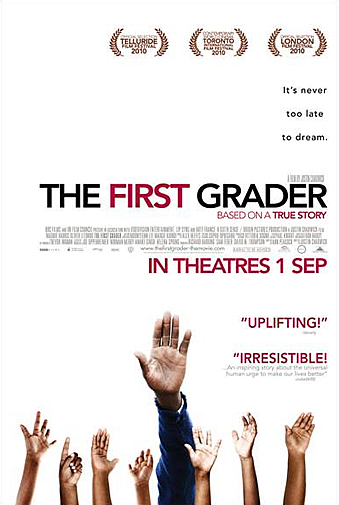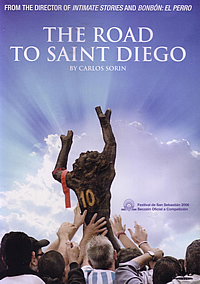MR PIP (2014)
Genre: Drama
Director: Andrew Adamson
Cast: Hugh Laurie, Kerry Fox, Eka Darville, Xzannjah Matsi
Runtime: 1 hr 56 mins
Rating: PG13 (Some Violence)
Released By: Shaw
Official Website:
Opening Day: 26 March 2015
Synopsis: Adapted by Andrew Adamson from the best-selling novel by Lloyd Jones, Mr Pip is the story of how Mr Watts (Hugh Laurie), a teacher on the war-torn island of Bougainville, helps a young girl survive the violence of her daily life through the power of imagination. Mr Watts reads from his favourite book, "Great Expectations", and 14-year-old Matilda (Xzannjah), is transported into the Victorian world, finding inspiration, friendship and hope when her real life is filled with harsh uncertainty and danger.
Movie Review:
Against the backdrop of the civil war on the isle of Bougainville, circa 1990, between the mainland Papuan troops and the local separatist rebels, the New Zealand novelist Lloyd James imagined the power of literature inspiring a teenage girl named Matilda (Xzannjah Matsi) to see the world through the lens of Charles Dickens’ classic novel ‘Great Expectations’. Matilda isn’t just entranced by the prose like the rest of her schoolmates; so caught up with the book is she that she daydreams Dickens’ characters coming to life right in front of her, depicted here by her fellow islanders in fanciful quasi-Victorian dress. Ok, that last bit was an embellishment on the part of this big-screen adaptation, but you get the point about the transformative impact of storytelling.
Intertwined in Matilda’s coming-of-age journey is her English teacher, Mr Watts (Hugh Laurie), an eccentric loner who also happens to be the only white man left on the island. The townsfolk regard him warily, especially during his trips to the village with his acutely depressed native wife, whom he pulls around in a handcart while she stands regally in it under a blue umbrella. Not surprising therefore, there is ambivalence all around when he first offers to give lessons to the village children, whom have been left without a tutor ever since the school shuttered many months ago. Nevertheless, what reservations they used to have slowly gives way when they see how much their children enjoy his lessons based on Dickens’ text, and begin to enjoy the very same pleasures themselves.
One person who isn’t quite won over is Matilda’s mom, Dolores (Healesville Joel), a devout lady who believes in religion for instruction than literature. She unceremoniously invades his classroom one day with her Bible in hand, and gracious as Mr Watts is, the conflict between these two teachers comes to a head one day when the soldiers descend on the village and suspect the story’s lead character, Mr Pip, to be a rebel fugitive that they are hiding. In a brutal but nonetheless effectively heart-rending sequence, Matilda’s mom withholds the only copy of the book which her daughter so desperately needs to prove to the soldiers that Mr Pip is mere fiction, thus provoking the soldiers even further, who eventually set fire to their homes.
That is however just the start, as the soldiers escalate their threats by executing some unfortunate villagers. The successive bursts of terror in the second act are jarring to say the least, especially when one compares that against the lyrical beauty of the island of Bouganville in the preceding act, but that contrast is wholly intended. Yes, there is a message here about the harrowing barbarism of war even against a backdrop as gorgeous as the Papuan New Guinea island, and it is one of the more persuasive points that this uneven and otherwise flawed film manages to make.
Far less successful is its ability to make its audience root for any one of the characters – and yes, that includes our lead teenage protagonist Matilda. Neither as a writer or as a director has Andrew Adamson been known for character-driven narratives, and he stumbles in both capacities in this regard. Thankfully, he has an impressive first-time performer in Matsi as Matilda, although her raw performance is somewhat undone by Laurie, who fails to find the right emotional notes for his enigmatic character to register.
Adamson’s artistic missteps do not stop there. His decision to interplay the real and the imaginary in Matilda’s mind also fails to build into anything meaningful; in fact, the sight of Pacific islanders dressed in Victorian costumes comes off particularly stilted and contrived, not to mention tasteless, considering how that used to be the dressing of their colonial masters.
All this adds up to a movie that is oddly unengaging, unfolding at pretty much its own languid pace for close to an hour before hitting somewhat of a surer stride when the military descends on the island. It doesn’t help that Adamson’s narrative follows closely that of the book by occurring across the span of many years, so much so that the denouement which reveals more about just why the enigmatic Mr Watts would take a stand on behalf of the rest of the village feels like an extended epilogue that is simply tacked on.
Surely, Adamson had the best of intentions optioning for Jones’ work in the first place, but his “labour of love” sadly doesn’t make up for the fact that it is lacking in both story and character development. What could be a poignant reminder of the power of storytelling instead becomes close to two hours of tedium, not helped by a scattershot narrative that doesn’t quite make anything in the film itself compelling. Take our advice – you’re much better off with Dickens and his ‘Great Expectations’ than with Mr Pip.
Movie Rating:


(Tedious, scattershot and uncompelling, this blend of lyricism and violence makes for an ill-fitting adaptation of the critically acclaimed titular piece of fiction)
Review by Gabriel Chong
You might also like:
.jpg)
Movie Stills

